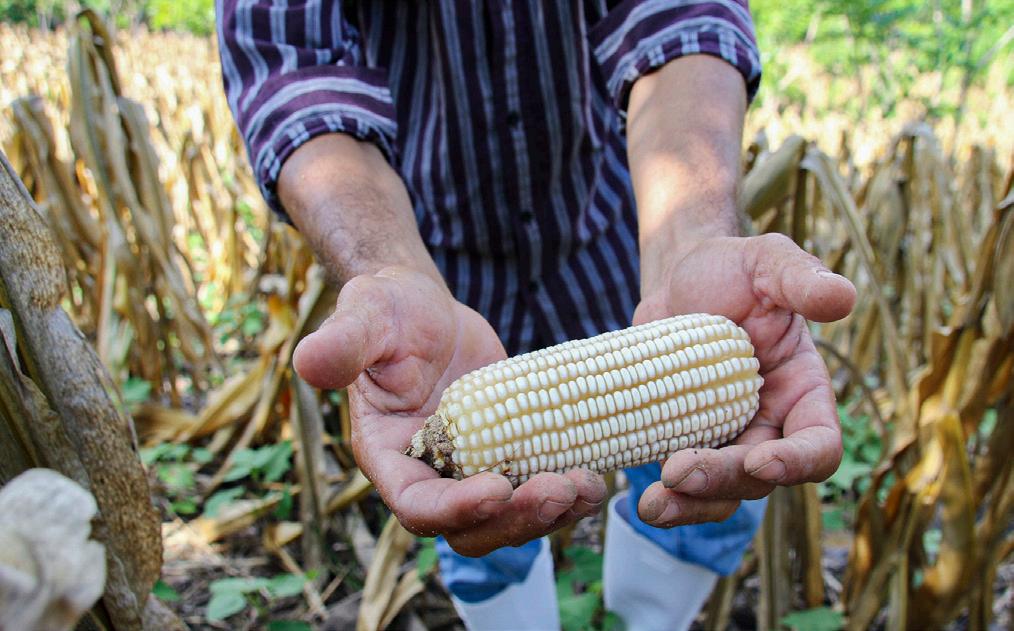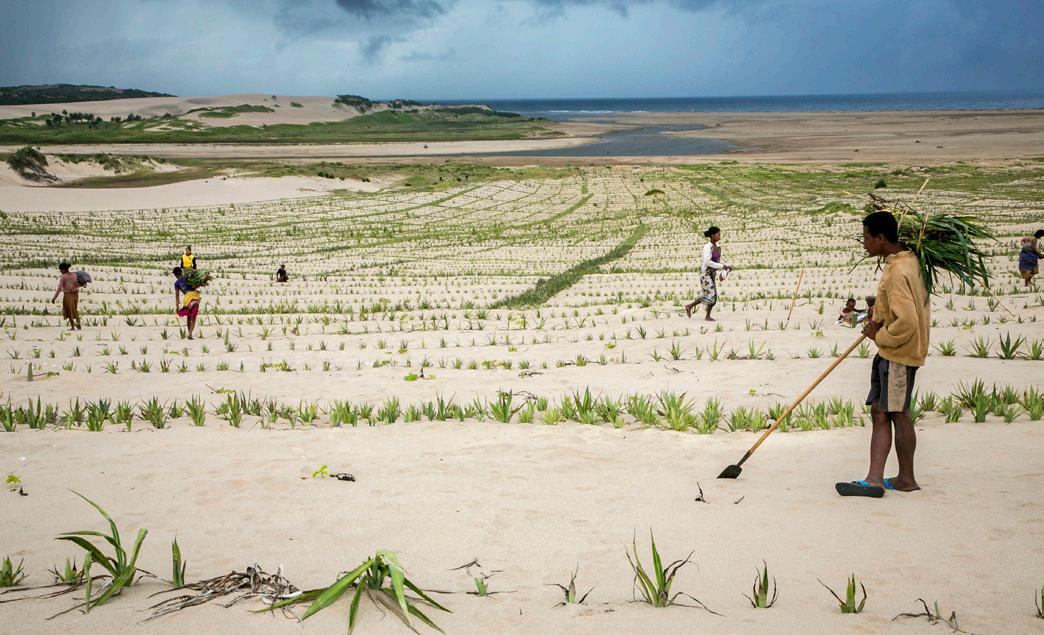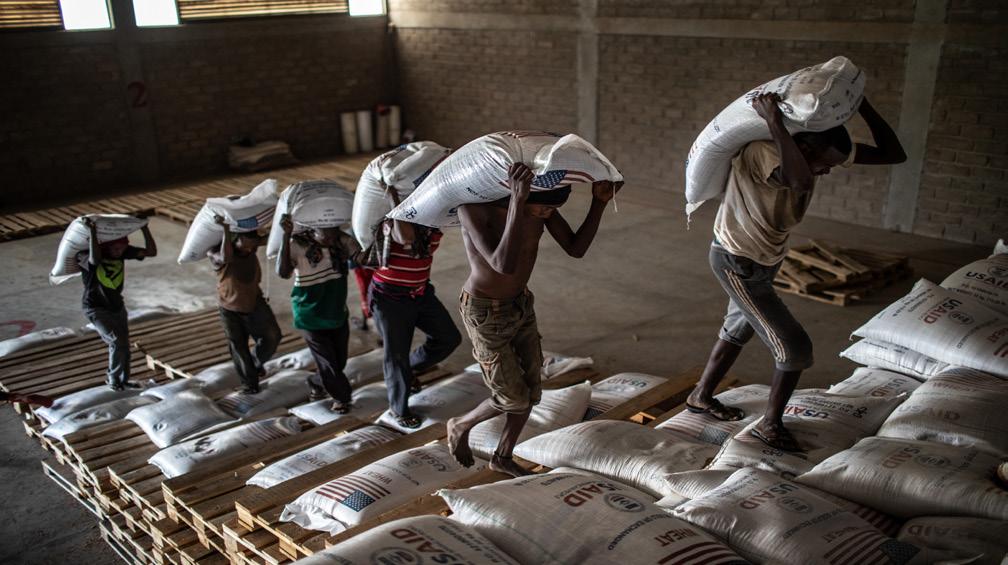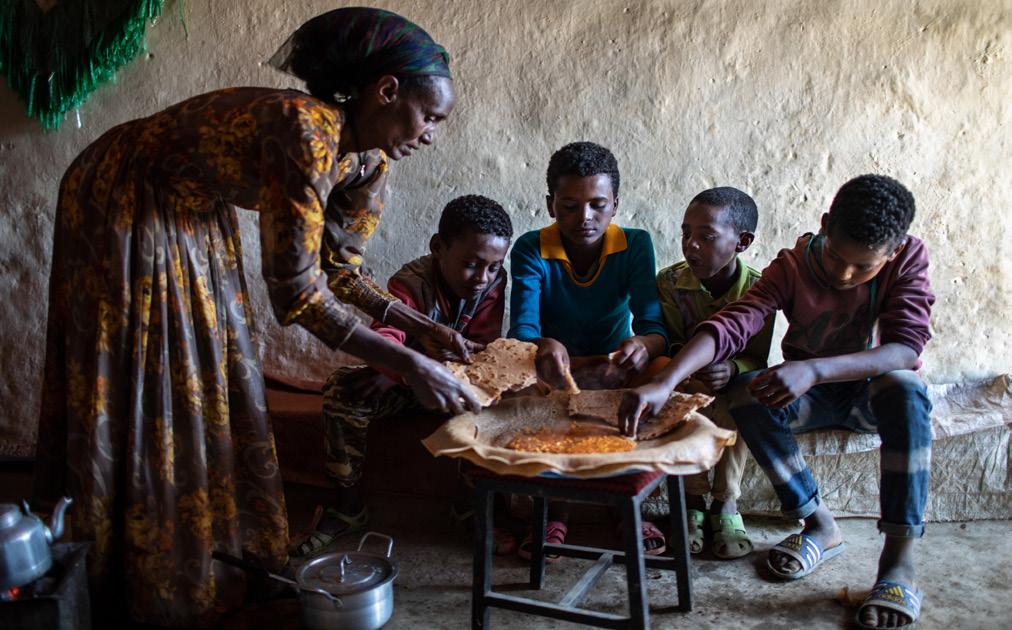
4 minute read
Catholic Relief Services’ Plea for Global Help
Place Deep Blue Thick full bleed border around these two pages. Also place a thin box around
Statement of Archbishops’ below. 36 P EOPLE of G OD june/july2020
Advertisement
Archbishop John C. Wester continues to encourage New Mexico representatives to support the Catholic Relief Services plea for global help for those in need.
Dear Speaker Pelosi, Leader McCarthy, Leader McConnell, and Leader Schumer:
228 West Lexington Street Baltimore, MD 21201-3443 crs.org / crsespanol.org
On behalf of Catholic Relief Services, I would like to thank you for your commitment to supporting poor and vulnerable families in the United States and around the world during the COVID-19 pandemic. We are encouraged that under your leadership, Congress has already appropriated roughly $1.6 billion in poverty-focused emergency supplemental funds for the Department of State and USAID to prevent, prepare for, and respond to COVID-19 overseas. In times of crisis, bold and courageous U.S. leadership, partnership, and expertise will be essential to help people survive with dignity and restore their lives and communities in the years to come.
Therefore, as Congress considers the next legislative package to respond to COVID-19, we urge you to provide at least $12 billion for the international response in order to meet immediate health needs as well as mitigate second
order humanitarian, economic, and social impacts. We encourage sufficiently flexible funding to react as quickly as possible to urgent, varied, and changing needs in the developing world. The threat of the virus and efforts to contain its spread have affected markets, businesses, schools and other institutions, and, most critically, the livelihoods and food security of households everywhere. Our experience from previous crises tells us that the most vulnerable communities will bear the brunt of these effects, and that existing inequalities and protection risks will be exacerbated. In addition to food security and livelihoods, we are especially concerned about risks to global stability, social cohesion, child protection, and primary education.
Catholic Relief Services’ staff and our local and national partners across the world are expanding and adapting existing programming to prevent the spread and reduce the risk of COVID�19 in some of the most vulnerable communities. We are addressing the needs of the highest�risk populations—especially older people, people with disabilities, people with compromised immune systems and their caregivers, and vulnerable children. We are also focusing on those living in extreme poverty, and those already experiencing a crisis or natural disaster, such as refugees or migrant communities. USAID has been hard at work instituting new policies and utilizing existing flexibility to help implementing partners like CRS adapt to the new local realities of the operational impacts of COVID-19. As CRS continues to serve the needs of the most vulnerable, we recognize that substantially more resources will be needed as the disease spreads and its impacts expand in every country.
In addition to allocating emergency resources for the international response, we ask you to support the broader charitable nonprofit sector's requests related to COVID-19, including expanding nonprofit access to credit and increasing the abovethe-line deduction for charitable contributions.
In an interconnected and fragile world, our ability to stand with the poor, our capacity to promote the common good, and our willingness to aggressively commit to resolving this crisis in all corners of the globe will have a direct impact on our families and communities here in the U.S. We call on Congress to provide at least $12 billion for the international response and to support our poorest and most vulnerable brothers and sisters. We thank you for your steadfast leadership and welcome the opportunity to discuss our work and request at your convenience.
Sincerest regards,
june/july2020
CRS GLOBAL HUNGER COVID-19
As acute hunger is expected to double in vulnerable populations because of the coronavirus pandemic, CRS launched an advocacy campaign May 14, 2020, to raise awareness about the world’s hungriest people.
Corn farmer Aroldo Antonio Linares Jacome shows some of his crop at his San Jose La Arada, Guatemala, farm Sept. 10, 2019, using a proven practice of managing soil to manage water and increase yields. (CNS Photo/Katlyn Holland, Catholic Relief Services)



Community members plant sisal on sand dunes to stabilize them and keep them from blowing and moving onto the farm land near the village of Anjongo, Madagascar, March 22, 2019. (CNS Photo/Jim Stipe, Catholic Relief Services)
Laborers carry bags of wheat on to roof-high stacks at a warehouse operated by Ethiopia’s National Disaster Risk Management Commission in Shinile, Ethiopia, Feb. 9, 2019 (CNS Photo/Will Baxter, Catholic Relief Services)


Workers unload food commodities from Catholic Relief Services and USAID in the village of Behera, near Tulear, Madagascar, Oct. 22, 2016.(CNS Photo/Nancy McNally, Catholic Relief Services).
Febedu Mehari serves a meal of injera and a yellow split pea dish to her children in Hadush Emba, Ethiopia, Feb. 7, 2019.. (CNS Photo/Will Baxter, Catholic Relief Services)

A man carries a bag of wheat supplied by Catholic Relief Services and USAID for emergency food assistance in a village near Shashemane, Ethiopia, in this 2016 photo. As acute hunger is expected to double in vulnerable populations because of the coronavirus pandemic, CRS launched an advocacy campaign May 14, 2020, to raise awareness about the world’s hungriest people. (CNS Photo/Nancy McNally, Catholic Relief Services)










